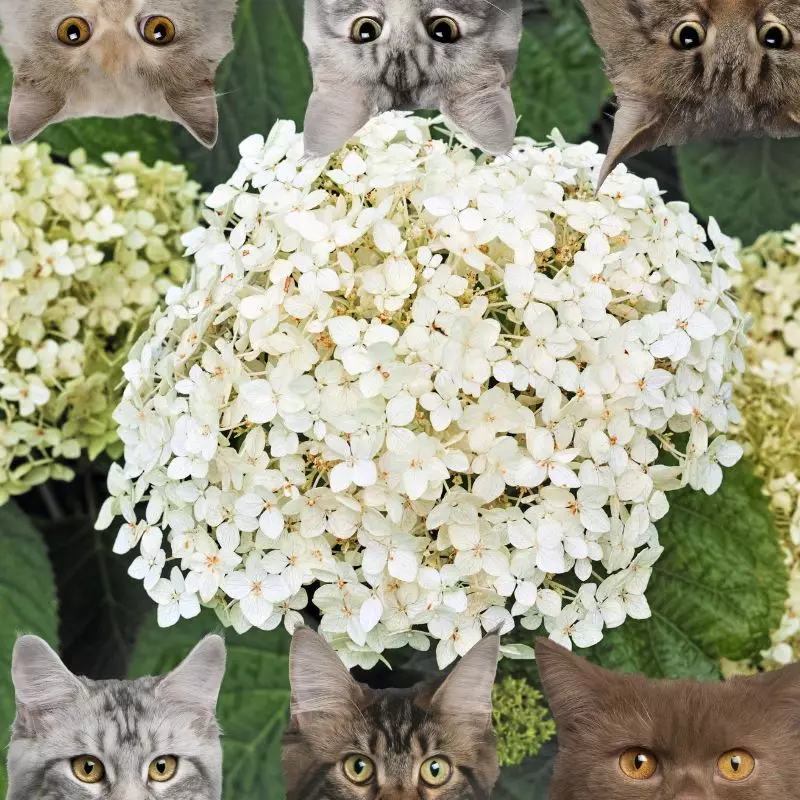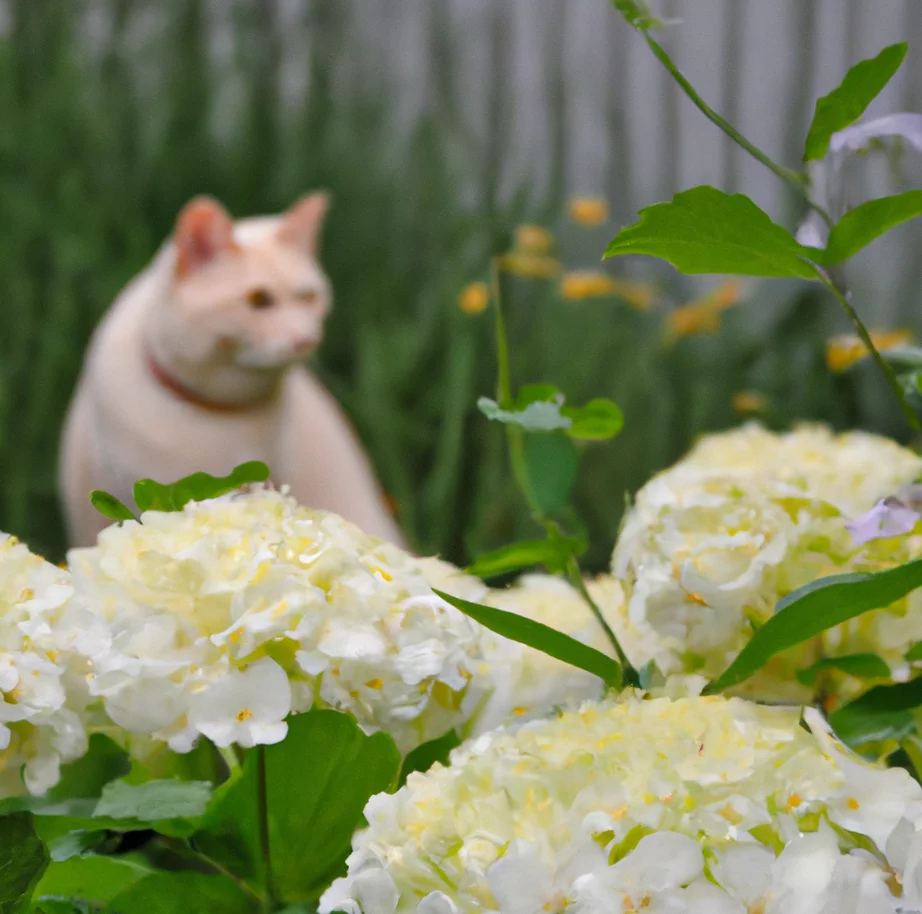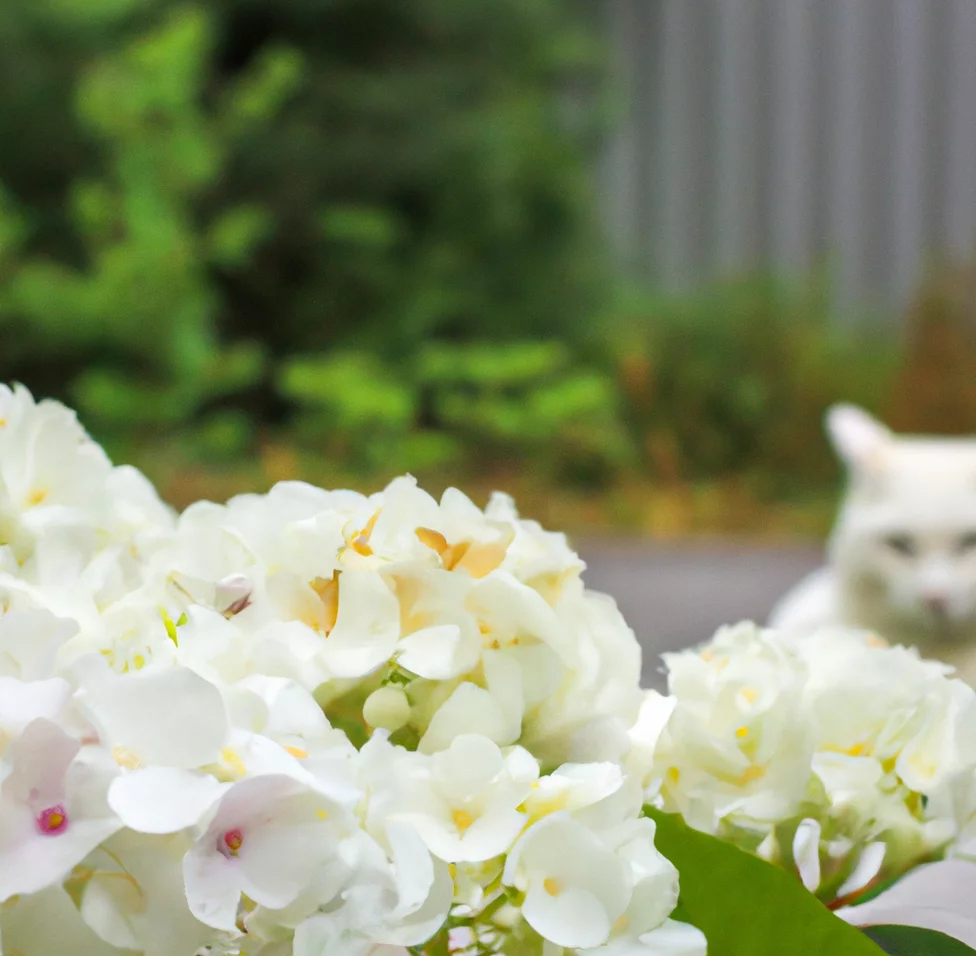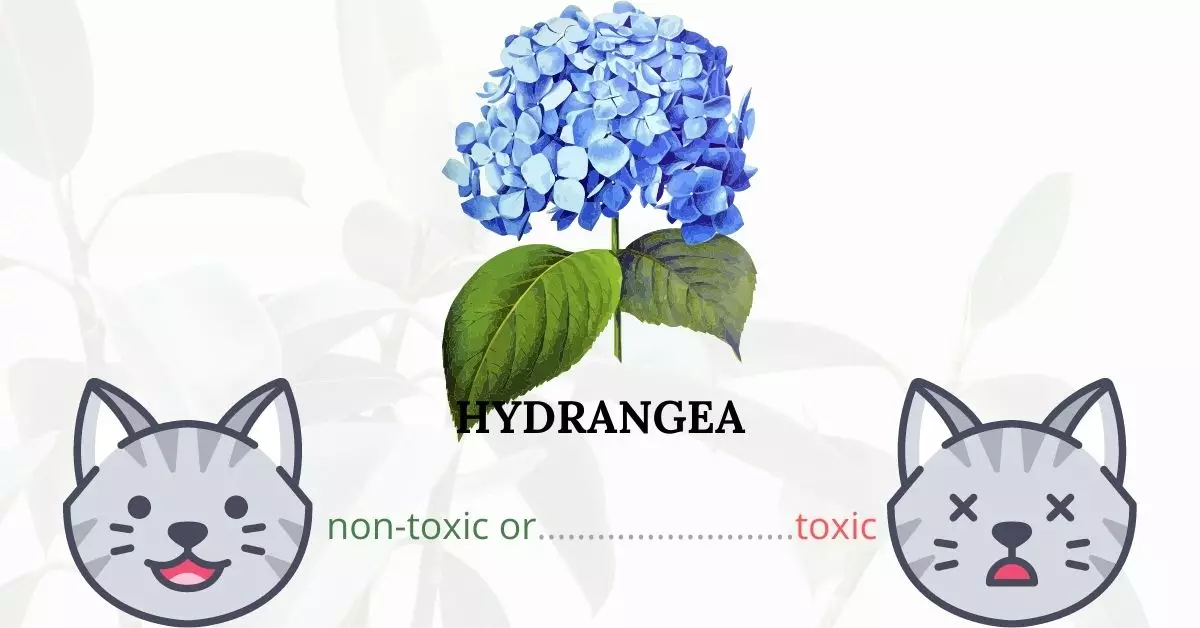Hills of Snow, also recognized as hydrangea, hortensia, and seven bark, is a popular garden shrub favored in landscaping. For cat owners, it’s crucial to know that this plant does contain substances that are toxic to cats.
Written in collaboration with a team of experienced DVMs (doctors of veterinary medicine), this article aims to offer precise and current insights on the potential dangers associated with the Hills of Snow and its effects on cats. Our diligent research included high-authority websites such as the ASPCA and PetMD to ensure thorough coverage on the topic.
Amygdalins, specific cyanogenic glycosides, are present in the buds and leaves of the hydrangea. When ingested, these glycosides undergo a reaction with the body’s water, producing hydrocyanic acid which robs cells of oxygen. Additionally, direct contact with the plant material may result in skin irritation.
Clinical Signs of Hills of Snow or Hydrangea Poisoning in Cats

When cats come into contact with, inhale, or ingest parts of the Hills of Snow or hydrangea plant, they may exhibit a range of symptoms due to the plant’s toxic substances. While many cases of poisoning are relatively mild, understanding each symptom can aid in prompt and appropriate care:
- Nausea: Caused by the body’s natural reaction to rid itself of toxic substances. Cats may appear restless or drool excessively.
- Vomiting: An immediate reaction to ingesting harmful components, assisting the body in expelling the toxins.
- Diarrhea: The body’s way of rapidly removing ingested toxins from the system.
- Abdominal pain: Cramping and discomfort can result from the body’s reaction to the cyanogenic glycosides present in the plant.
- Breathing difficulties: Hydrocyanic acid, produced when the glycosides are digested, deprives cells of oxygen, potentially leading to respiratory distress.
- Depression: The overall feeling of malaise and discomfort due to the body’s adverse reaction to the toxins.
- Dermatitis (in hypersensitive cats): Some cats might exhibit skin reactions upon direct contact with the plant, showing redness, swelling, or itchiness.
- Limb stiffness: A potential neurological effect of the toxins, causing limited or stiff movement.
- Seizures: In severe cases, the neurotoxic effects can escalate to seizures, indicating a critical condition.
- Coma: In extremely rare cases, the cumulative toxic effects can lead to a cat falling into a coma.
If your cat displays any of these symptoms after coming into contact with Hills of Snow or hydrangea, seek veterinary care immediately.
First Aid and Treatment of Hills of Snow or Hydrangea Poisoning in Cats

The majority of hydrangea poisoning cases are treated by managing symptoms. The severity of the cases might vary widely, but the majority are minor. In severe cases, hospitalization may be necessary.
The poisons must be removed from your cat’s stomach by either causing vomiting with hydrogen peroxide or stomach pumping, commonly known as gastric lavage, by the veterinarian. The cat’s body will not absorb any more toxins if all leftover plant material is removed from inside the cat.
Your cat may get dehydrated if he or she has been vomiting or having diarrhea for an extended period of time. Intravenously administered fluids can help the cat’s body function and volume return to normal.
Recovery from Hills of Snow or Hydrangea Poisoning in Cats

In most cases, cats fully recover from hills of snow poisoning provided that the symptoms were addressed as quickly as possible. Your cat may still be distressed from the poisoning experience so it is recommended to let him or her rest comfortably at home.
Prevention of Hills of Snow or Hydrangea Poisoning in Cats
Be mindful of the floral arrangements that you bring inside your house. If you have hydrangeas indoors or in your gardens, it is highly advisable to get rid of them right away. The best method to protect your cats from coming into contact with the hydrangeas and other hazardous plants is to keep them indoors so you can be more aware of which plants they are exposed to.
If you love plants but have cats at home, check out these lists:





